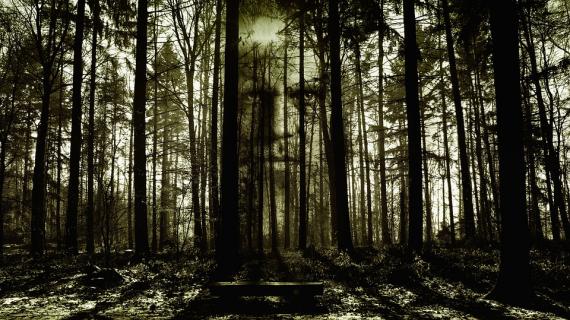
Editor’s Note: All this week, we’re sharing writing produced by residents of Fort Lyon Supportive Residential Community, which provides recovery-oriented transitional housing, counseling, and services for homeless individuals.
Lighthouse is sending three writers-in-residence to Fort Lyon this year to help participants explore personal histories and provide a forum for practicing creative exploration. This piece was produced during writer-in-residence John Cotter’s stay at Fort Lyon in March. For more information about the Fort Lyon residency, click here.
By Dara Harvey
It was summer in Denver, and I was 20. A year had passed since my son Travis came into this world at Fitzsimons Army Medical Center. The sweet heartache of “what if,” letting him go all those years ago, is still fresh, like the throbbing sting from a kitchen knife accident on a useful finger.
It’s strange, the series of events that followed. I chalk it up to postpartum depression. But that was the year I found myself homeless, without rhyme or reason to guide me. I got to do all sorts of interesting things: dumpster diving, meal hopping, sack lunch over here, coffee and snacks over there, and dinner with seconds to take with you over there. Locations for meals and activities changed every day from place to place, so I did a lot of walking and bike riding.
I occasionally drank 40s of cheap beer, and I bathed in the septic smell of the Cherry Creek that flowed through my camp, which was little more than a dugout under a bridge. I made small comforts there; I had oil lamps, a radio, crates for my clothes, a little curtain to pull for privacy, and enough space to throw down a full-size mattress. There was a fresh water spigot across the street and a clean port-a-potty two blocks away.
Even though I was on my own, I was happy. At my age, I should have been able to go to school or get a job, but that was a repugnant idea, I liked being homeless. I had all my basic comforts met, and I had four experienced veterans of the streets looking out for me. The fact that my friends always smelled like a rotten sock and mildew never bothered me, and I embraced whatever this new life of irresponsibility had to offer with open arms.
But there was one day in particular that I will never forget. My buddies and I decided to take off to the mountains to escape the searing heat and camp at these little-known cool, natural springs and friendly campsites in the foothills of Golden.
That morning, we packed up our essentials and headed toward Colfax. We rode the number 16 bus as far west as it would take us, ignoring cynical glances of disgust from other riders, and we chatted among ourselves of the excitement and festivities we would enjoy while up in the mountains.
The bus ride had ended, and we now found ourselves on foot. From where we were, our destinations still seemed out of reach, as the cloudless July heat beat down on our already weathered and tan skin.
It was around one o’clock, the suburban condos gave way to small houses on large plots, farms to gardens, and prickly brown fields. The orchestra of locusts was like a procession up the winding and narrowing roads toward the mountains. At one point we decided to rest, either by seeking shade or relieving ourselves in a nearby bush. One of my friends crossed the street to an adjacent ravine to do just that. A moment later, Alan yelled out to someone below, “Hey buddy, you alright?” Immediately, the rest of us ran over to investigate. We all peered down the ravine toward a trickling stream, and there was a man, a white man with grey hair, so pale he looked blue, cold and still. His face was turned sideways, half submerged in the trickling water. His clothes were disheveled and dirty, and there was nothing remarkable about this man other than the fact that he was dead.
Convinced the man was not dead, Alan practically ran down to the listless body, struggling through the shrubs and rocky outcroppings. As we watched on, I entertained the idea that the man lying in the water would somehow spring back to life and yell, “Just kidding, I’m fine!” But he did not. That reality became clear the moment Alan touched him and then fell backwards on his rear-end from the shock of the ice-cold contact he made with this lifeless man.
None of us had ever seen a dead person before, and we became panicky about what to do. Alan checked John Doe’s clothes for a wallet despite our pleas not to touch him, but there was nothing. With some regret, we decided to leave the peaceful man sleeping in the water. It was safe to assume we chose to do that for fear of any incriminations pointed at us. Most homeless people don’t like getting involved with the authorities for any reason. So we said a thoughtful prayer and said goodbye to him.
That night, we found our campsite in the foothills of Golden. None of us spoke much of the event or even slept well, despite the serene star-filled night and the gentle crackle of the campfire. I remember pondering karma, ghosts, and the stark reality of how fragile life really is, because the ghost of John Doe followed us back to our urban slum. This ghost pressed our consciences in varying degrees, as we grappled with the guilt of not helping him. “What if? What if?” resurfaced in my mind, even now as I think about certain things in my life, but mainly my thoughts wander toward my child and how our paths have never crossed except by the random order of chance. I tell you, it’s the ghost of John Doe.

